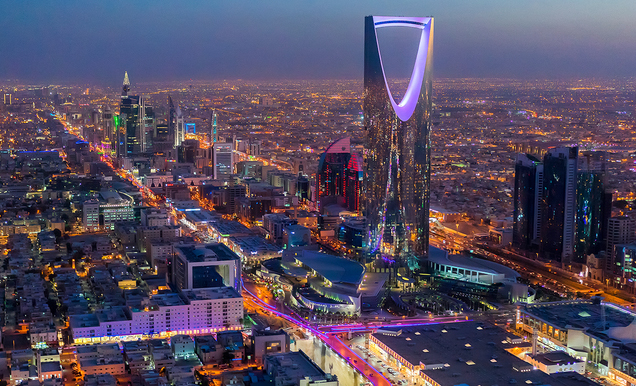Saudi Arabia takes the global lead in Artificial Intelligence

Saudi Arabia (KSA) is moving forward with an ambitious economic plan – where once it was solely reliant on oil, now it is positioning itself as a tourist destination to rival the Arab Emirates and as a global technology leader. Saudi Arabia want to be at the centre of an international collaboration that pushes the advances of Artificial Intelligence (AI) for the good of all.
His Royal Highness Prince Mohammed bin Salman bin Abdulaziz, the Kingdom’s Crown Prince, opened the 2020 Global AI Summit and was quoted as saying “The year 2020, undoubtedly, has been an extraordinary year to test the potential of AI, as we witness the formation of a new global normal that is redefining our ways of life, working and learning...I hereby invite all dreamers, innovators, investors and thinkers to join us, here in the Kingdom, to achieve our ambitions together and to build a pioneering model; to unlock the value of data and AI in order to build knowledge-based economies and advance our present and future generations.”
The Saudi Data and Artificial Intelligence Authority (SDAIA) recently released a multi-phase strategy setting out their plans to 2030: “Data and AI are at the heart of Saudi Arabia’s Vision 2030. By developing our own AI strategy and policies, we have developed the skills and resources that we wish to share with other nations to ensure that all countries are equally prepared to harness the value of AI,” said Majid AlShehry, of SDAIA.
Saudi Arabia has been a strong advocate of Artificial Intelligence, becoming the first country in the world to grant citizenship to ‘Sophia’, an AI robot, back in 2017. Now they’re looking to partner with outside investment to embrace all that AI technology can offer. It makes sense given a number of major international organisations including UNESCO and the World Bank are all currently working independently towards the same aim.
SDAIA showcased three developments:
- The Boroog platform, a secure government videoconferencing system, used for the G20 summit. SDAIA disclosed in November that the authority has repelled more than 2 million cyberattacks using special protections it had developed.
- The Tawakkalna app, designed to support government efforts aimed at countering COVID-19. It facilitates the issuance of movement permits electronically during curfews for government and private sector employees.
- AI Artathon, the first international artificial intelligence ‘hackathon’ art competition held in Saudi Arabia.
There is the longheld fear that AI advances will ‘steal’ jobs but a recent study suggested whilst 85 million jobs will be eliminated worldwide by 2025 as a result of automation, AI and IoT connectivity, 97 million would be created, including in the area of cybersecurity.
With KSA now spearheading a global drive in AI it can be expected that the pace of advancement and adoption will speed up – but will we really notice? Is it not just a natural process of evolution in many industries in order to remain competitive and fiscally secure? Either way, there’s no denying that artificial intelligence within both industry and our daily lives, is here to stay. We wait to see what innovation the Kingdom announces next.